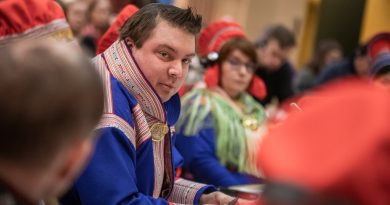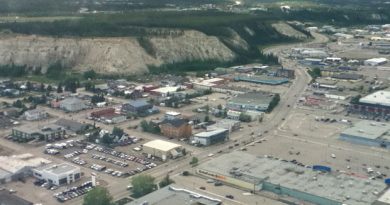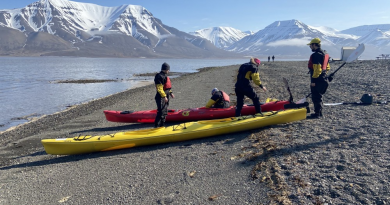Who is the person named ‘Eskimo’ buried in a cemetery in Northern Canada?
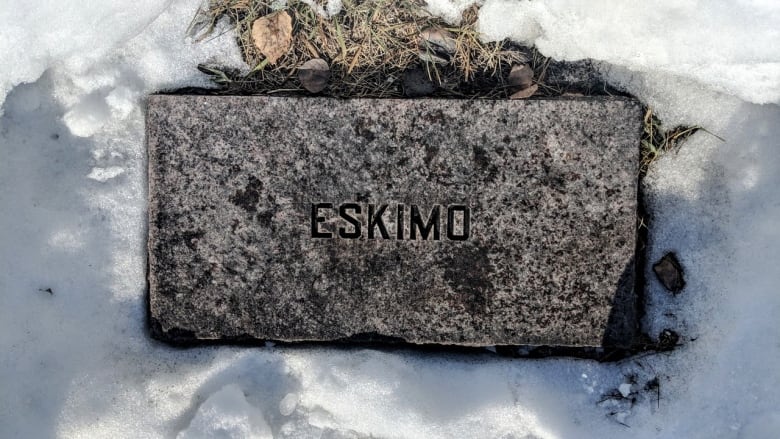
A few steps off a lane in Yellowknife’s Lakeview Cemetery, in the Northwest Territories, a grave marker with the word “Eskimo” in all-caps neatly carved into it. There is no name or birth and death dates.
“It’s really sad,” Craig Yeo, a Yellowknife resident, said of the marker.
He said he first noticed it at least two decades ago.
“It’s just always struck me as completely bizarre and very insensitive,” Yeo said.
“How do you become responsible for human remains that you don’t know the name of?”
A photo of the grave marker was posted to Twitter earlier this month. The man who posted it said he and his wife always wondered why the marker had no name attached. And there is no ready answer.
Here's a pic of a grave in #Yellowknife cemetery. My wife, AmberLee (Kolson/Horton) was born and raised there and we've wondered why it was just marked "Eskimo". This may explain it –@JustinTrudeau apologizes for 1940s-'60s mistreatment of Inuit with TB https://t.co/AKic4Zi9Ks pic.twitter.com/Y6y00zMPq1
— Tom Engel (@TomEngel18) March 8, 2019
City has no information
The city of Yellowknife is responsible for the cemetery. Richard McIntosh, a spokesperson for the city, said in an email that the name “Eskimo” is in the city’s burial records and there is a body under the marker, but there is no other information about either.
Citing a Yellowknife heritage map, he said the cemetery opened in 1946, and the body and the marker would have been placed there some time afterward.
The city is the only organization that has ever operated the cemetery, and it’s unable to determine when it first recorded the marker, McIntosh said.
Vital statistics, such as the record of births and deaths, are managed by the Department of Health and Social Services in the Northwest Territories.
“Unfortunately, there is not enough information on the grave marker for Vital Statistics to conduct a search of the death registry,” said Umesh Sutendra, a department spokesperson, in an email.
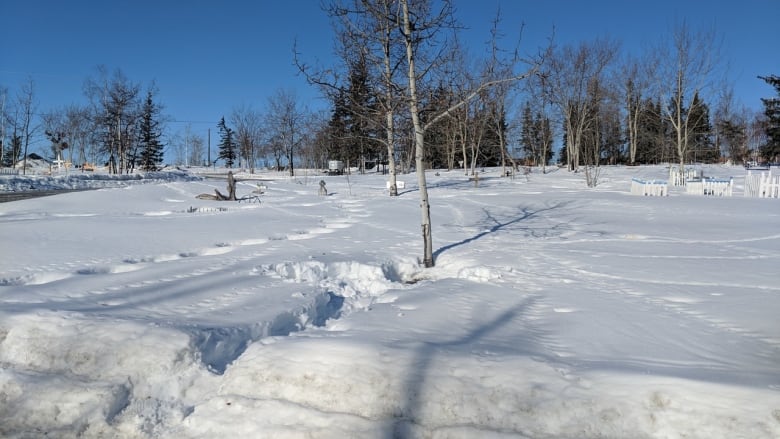
Canada has a history of burying Indigenous people in unmarked graves, and this grave has previously come to the attention of the federal government.
Tim Kenny, a spokesperson for Crown-Indigenous Relations and Northern Affairs Canada, said in an email that the department has looked into this grave marker before.
“In conducting this research, the department had been in contact with the City of Yellowknife regarding the Lakeview Cemetery’s burials, including the grave marker reading ‘Eskimo.’ The city … was helpful in providing information, however based on the records that they have, the grave marked ‘Eskimo’ remains unknown,” he said.
In a follow-up email, the department said the case was never closed. If new information becomes available, it will be added to a database part of the Nanilavut Initiative, which was announced earlier in the month.
The database contains information on thousands of Inuit who were sent south for treatment of tuberculosis. Many of their families weren’t notified of what happened to them.
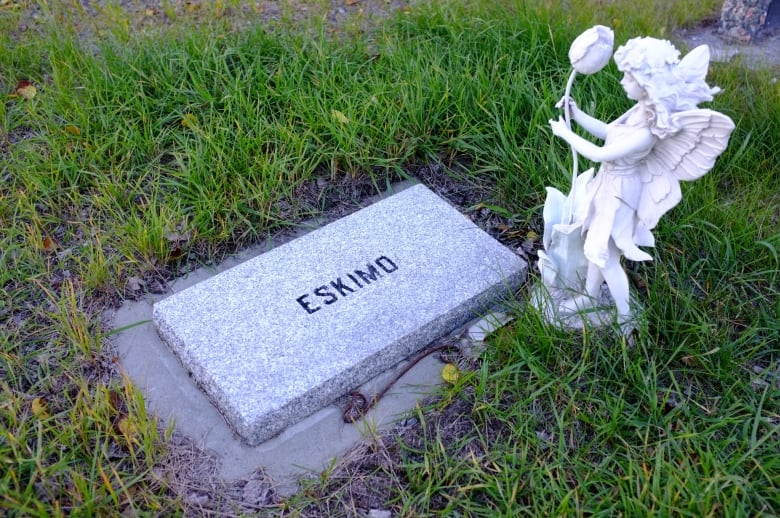
Church and archives have no record
Cherish Winsor, a spokesperson for the Department of Education, Culture and Employment, said in an email that it’s “unlikely the NWT Archives have any records relating to this grave marker.”
“In the past, many Inuit were Anglican Protestant so it could be the local Anglican Church who may have been involved with this grave marker,” she said.
Rev. Bryan Haigh of Holy Trinity Anglican Church said, based on the limited information about the marker, the church doesn’t appear to have been involved with it.
Yeo provided CBC News with a photo, dated 2011, of a grave marker with “Eskimo” carved into it. Although it looks similar, it’s not clear if it’s the same grave marker in the cemetery.
According to the website Find A Grave, which allows users to upload information on graves, there is another “Eskimo” grave and a “Baby Eskimo” grave in the same cemetery.
McIntosh said the city is unable to search for similar markers.
CBC News also contacted several organizations last week that represent Inuit; they either referred comment elsewhere or didn’t respond by publication.
Related stories from around the North:
Canada: Human remains and artifacts left at doorstep of Canadian Inuit organization, CBC News
Finland: Newspaper ads seek relatives of hundreds killed in 1918 Finnish Civil War, Yle News
Russia: Finnish grave hunter brings over 100 war dead home from Russia for burial, Yle News

